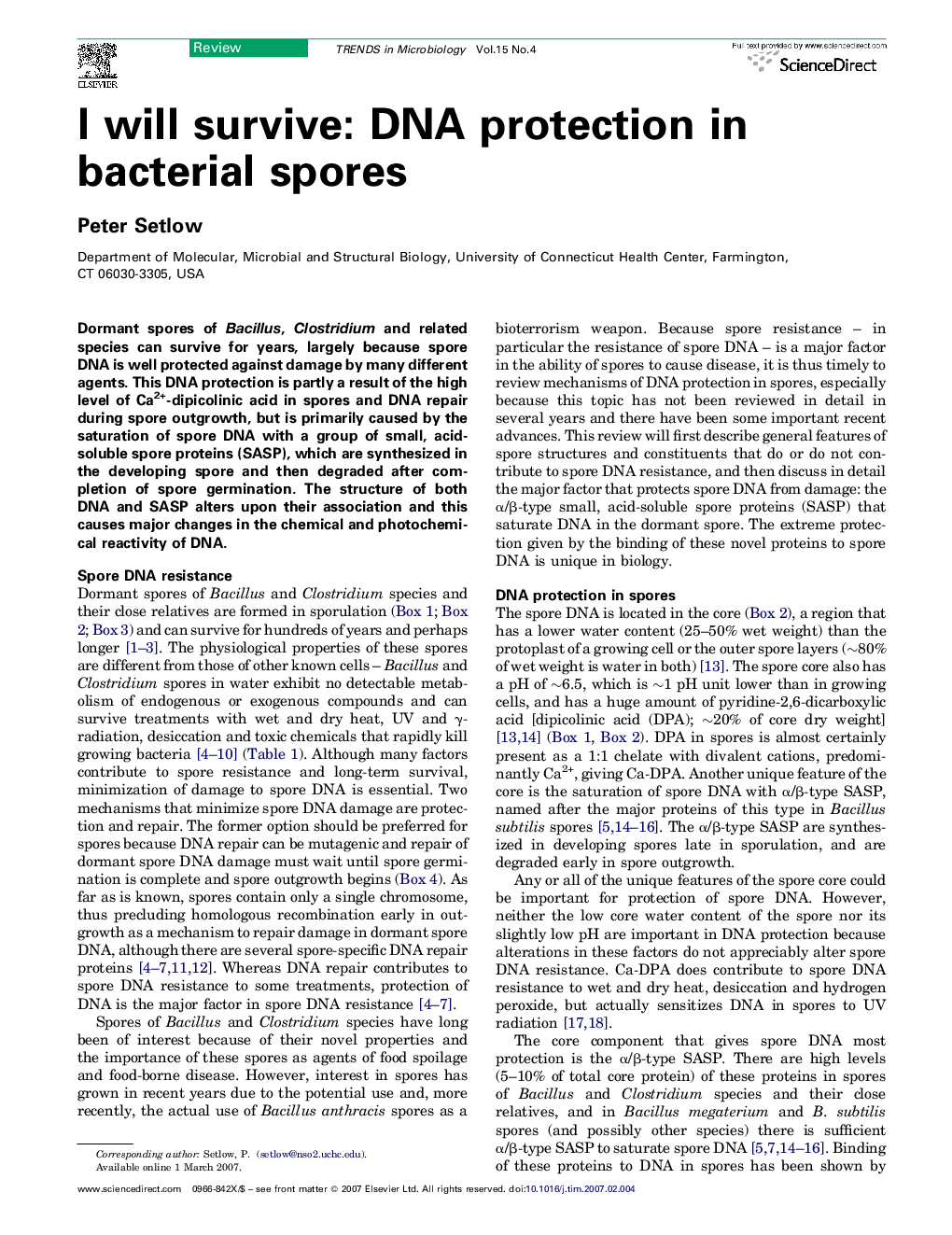| Article ID | Journal | Published Year | Pages | File Type |
|---|---|---|---|---|
| 3422712 | Trends in Microbiology | 2007 | 9 Pages |
Abstract
Dormant spores of Bacillus, Clostridium and related species can survive for years, largely because spore DNA is well protected against damage by many different agents. This DNA protection is partly a result of the high level of Ca2+-dipicolinic acid in spores and DNA repair during spore outgrowth, but is primarily caused by the saturation of spore DNA with a group of small, acid-soluble spore proteins (SASP), which are synthesized in the developing spore and then degraded after completion of spore germination. The structure of both DNA and SASP alters upon their association and this causes major changes in the chemical and photochemical reactivity of DNA.
Related Topics
Life Sciences
Immunology and Microbiology
Microbiology
Authors
Peter Setlow,
